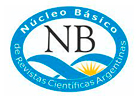ECONOMIC METAPHORS AND ENVIRONMENTAL LAW: REFLECTIONS FROM COMPLEXITY
Keywords:
Economic metaphors, Environmental Law, ComplexityAbstract
This paper seeks to revisit economic metaphors largely used in environmental law (EL), especially the international one, such as "sustainable development" and "green economy". This bibliographic essay argues that the first metaphor represents a romantic discussion with few results and the second one is concerned to grant economic value to nature, stimulating investments in a new green market. Therefore, some epistemological reflections are made to consider that these guidelines are insufficient to stop nature destruction. Finally, it argues that the EL could observe the paradigm of complexity, which has had a significant rise in social sciences under the influence of Edgar Morin. The contributions of this author promote a transdisciplinary and systematic view. Whereas the legal subsystem is essential for building a more efficient model of environmental management, complexity approach could better integrate EL to other fields of knowledge.
Downloads
References
AFRICA UNION (1967) African Convention on the Conservation of Nature and Natural Resources. Consultado en línea <http://www.africa-nion.org/root/au/Documents/Treaties/Text/nature%20and%20natural%20 recesource.pdf > el 04 de julio de 2013.
BIAGI, M.; FERRO, M. (2011) “Ecological Citizenship and Social Representation of Water”. En SAGE Open, 2011, I, 2, 1-8.
CAMPOS, L. B.; CORRÊA, G. A. (1998) Comércio e meio ambiente: atuação diplomática brasileira em relação ao selo verde. Brasília, Coleção de Altos Estudos do Instituto Rio Branco, 1998.
CAPALDO, G. (2011) “Gobernabilidad ambiental y eficacia del Derecho: dos magnitudes del desarrollo sustentable”. En Gobernanza y manejo sustentable del agua, Buenos Aires, Mnemosyne, 2011, 1-39.
CARVALHO, K. M. (2015) Comercio internacional y seguridad hídrica – perspectivas desde el principio precautorio. Tesis (Doctorado en Derecho), Facultad de Derecho de la Universidad de Buenos Aires, Buenos Aires.
COASE, R.H. (1960) “The Problem of Social Cost”. En Journal of Law and Economics, 1960, III, 1, 1-44.
CROCKER, L. (1977) “Equality, Solidarity, and Rawls' Maximin”. En Philosophy & Public Affairs, 1977, VI, 3, 262-266.
ECHAIDE, J. (2013) El derecho humano al agua potable y los tratados de protección recíproca de inversión. Tesis (Doctorado en Derecho), Facultad de Derecho de la Universidad de Buenos Aires.
GAGO RODRÍGUEZ, A.; LABANDEIRA VILLOT, X. (1997) La imposición ambiental: fundamentos, tipología comparada y experiencias en la OCDE. España, y Departamento de Economía Aplicada, Universidad de Vigo, Hacienda Pública Española, 1997.
GALATI, E. (2012) “Visión compleja de los paradigmas científicos y la interpersonalidad en la ciência”. En Cinta moebio, 2012, 44, 122-135.
GALVÃO, A.C.F. (2012) Economia verde para o desenvolvimento sustentável. Brasília, DF, Centro de Gestão e Estudos Estratégicos, 2012.
HARTWICK, J. M. (1977) “Intergenerational equity and the investing of rents from exhaustible resources”. En American Economic Review, 1977, 66, 972-974.
JUNQUEIRA, S; DE JESUS, T. (2013) “Carlos Cossio e a experiência jurídica”. En Revista do Curso de Direito da UNIFACS, 2013, 161, 1-15.
LUHMANN, N. (2009) Introdução à teoria dos sistemas. Petrópolis, Vozes, 2009.
MORGAN, G. (2005) “Paradigmas, metáforas e resolução de quebra-cabeças na teoria das organizações”. En RAE, 2005 XLV, 1, 58-71.
MORIN, E. (1990) Introducción al Pensamiento Complejo. España, Gedisa Editorial, 1990.
_________. (1993) Tierra pátria. Buenos Aires, Nueva Visión, 1993.
_________. (1999) La Cabeza Bien Puesta: Repensar la reforma, re- formar el pensamiento. Argentina, Ediciones Nueva Visión, 1999.
MUELLER, C. (1996) “Economia e meio ambiente na perspectiva do mundo industrializado: uma avaliação da economia ambiental neoclássica”. En Estudos Econômicos, 1996, XXVI, 2, 261-304.
NACIONES UNIDAS (2013) Asuntos primordiales sobre el desarrollo sostenible. Consultado en línea <http://www.un.org/spanish/esa /sustdev/agenda21/agreed.htm> el 25 de septiembre de 2013.
OREGON UNIVERSITY (1949) International convention for the northwest atlantic fisheries. Consultado en línea <http://iea.uoregon.edu/pages/view_treaty.php?t=1949-northwestAtlanticFisheries.EN.txt&par=view_treaty_html> el 26 de septiembre de 2013.
RAES, T.; LAVILLE, B.; LAMBERT, S.; SAINTENY, G. (2010) Développement durable – aspécts strategiques et opérationnels. Paris, Editions Francis Lefebvre, 2010.
SCHRIJVER, N. (2008) The evolution of sustainable development in international law: inception, meaning and status. Hague, Hague Academy of International Law, 2008.
SERVA, M. (1992) “O paradigma da complexidade e a análise organizacional”. En Revista de Administração de Empresas, 1992, XXXII, 2, 26-35.
SOLOW, R. M. (1974) “On the intergenerational allocation of natural resources”. En Scandinavian Journal of Economics, 1974, 88, 141-149.
UN (1982) World Charter for Nature. Consultado en línea <http://www.un.org/ga/search/view_doc.aspsymbol=A/RES/37/7&Lang=E&Area=RESOLUTION> el 10 de julio de 2013.
UN (1950) Proceedings of United Nations Scientific Conference on the Conservation and Utilization of Resources. v.I, Plenary Meetings, UN doc. E/CONF 7/7.
UN (1962) A/PV.1197 - Economic development and the conservation of nature. Consultado en línea<http://www.un.org/ga/search/view_doc.asp?symbol=A/RES/1831(XVII)&Lang=E&Area=RESOLUTION> el 03 de julio de 2013.
UN (1992) Report of the World Commission on Environment and Development: our common future. Consultado en línea<http://www.un-documents.net/wced-ocf.htm> el 10 de julio de 2013.
UNEP (2011) Hacia una economía verde: Guía para el desarrollo sostenible y la erradicación de la pobreza - Síntesis para los encargados de la formulación de políticas. Consultado en línea<http://www.unep.org/greeneconomy> el 14 de septiembre de 2013.
UNEP. (1975) Report of the governing council. Consultado en línea<http://www.unep.org/sgb/prev_docs/75_0304_GC3_ Report_K7510025.pdf> el 06 de julio de 2013.
UN (1972) Declaration of the United Nations Conference on the Human Environment. Consultado en línea<http://www.unep.org/Documents.Multilingual/Default.asp?DocumentID=97&ArticleID=1503> el 05 de julio de 2013.
VIEIRA, A.C. (2013). O diálogo sustentável entre o direito internacional e o direito à agua. Tesis (doctorado en derecho), Facultad de Derecho de la Universidade de São Paulo.
Downloads
Published
Issue
Section
License

This work is licensed under a Creative Commons Attribution-NonCommercial 4.0 International License.
Los/as autores/as que publican en esta revista están de acuerdo con los siguientes términos:
1. Los/as autores/as conservan los derechos de autor y garantizan a la revista el derecho de ser la primera publicación del trabajo al igual que licenciado bajo una Creative Commons Attribution-NonCommercial 4.0 International License que permite a otros compartir el trabajo con un reconocimiento de la autoría del trabajo y la publicación inicial en esta revista.
2. Los/as autores/as pueden establecer por separado acuerdos adicionales para la distribución no exclusiva de la versión de la obra publicada en la revista (por ejemplo, situarlo en un repositorio institucional o publicarlo en un libro), con un reconocimiento de su publicación inicial en esta revista.
3. Se permite y se anima a los/as autores/as a difundir sus trabajos electrónicamente (por ejemplo, en repositorios institucionales o en su propio sitio web) antes y durante el proceso de envío, ya que puede dar lugar a intercambios productivos, así como a una citación más temprana y mayor de los trabajos publicados (Véase The Effect of Open Access) (en inglés).














